
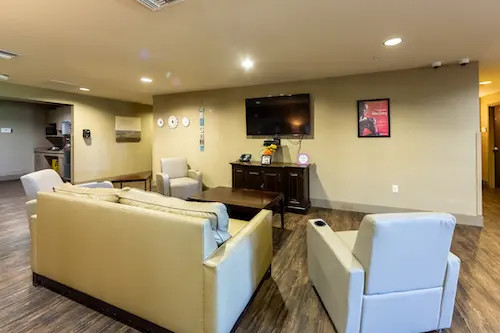
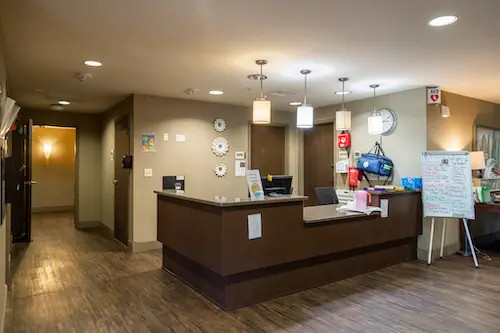
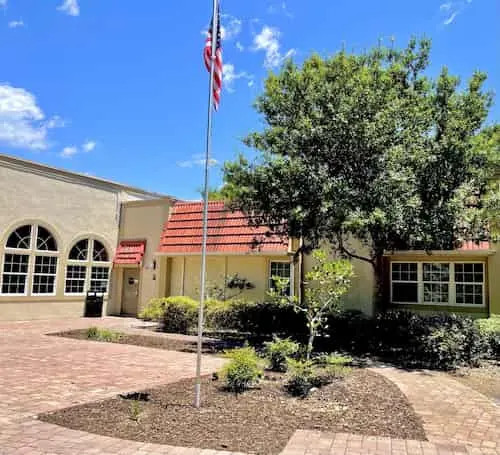
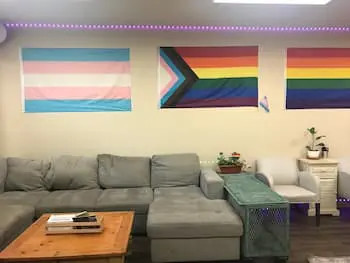




River Oaks Treatment Outpatient Center
Verified Center
This provider's information has been quality-checked by Recovery.com's Research Team for accuracy and completeness, including center verification through appropriate third-party organizations.
Treatment Focus
This center treats substance use disorders and co-occurring mental health conditions. Your treatment plan addresses each condition at once with personalized, compassionate care for comprehensive healing.
Primary Level of Care
Outpatient treatment offers flexible therapeutic and medical care without the need to stay overnight in a hospital or inpatient facility. Some centers offer intensive outpatient program (IOP), which falls between inpatient care and traditional outpatient service.
Treatment Focus
This center treats substance use disorders and co-occurring mental health conditions. Your treatment plan addresses each condition at once with personalized, compassionate care for comprehensive healing.
Primary Level of Care
Outpatient treatment offers flexible therapeutic and medical care without the need to stay overnight in a hospital or inpatient facility. Some centers offer intensive outpatient program (IOP), which falls between inpatient care and traditional outpatient service.
Provider's Policy
River Oaks accepts numerous insurance plans. Learn more about how we can help or start admissions online by checking your insurance coverage for addiction treatment services.
River Oaks Treatment Outpatient Center
River Oaks Treatment Outpatient Center
About River Oaks Treatment Outpatient Center
River Oaks Outpatient Center provides outpatient treatment for addiction and co-occurring mental health conditions using a continuum of care and personalized treatment plans. Their levels of outpatient care include day treatment, intensive outpatient, and telehealth services. Clients can reside at home or in their adjacent sober living facility during outpatient care.
Multiple Levels of Outpatient Care
Clients can attend specific levels of care or seamlessly move across the continuum to follow a progressive rehab journey. River Oaks Outpatient Center’s most intensive level of outpatient care, day treatment, runs Monday-Friday from 9-4:30pm. Clients participate in evidence-based therapies like cognitive behavioral therapy (CBT), trauma therapy, dialectical behavioral therapy (DBT), motivational interviewing techniques, art therapy, and the 12-Step program. In River Oaks Outpatient Center’s intensive outpatient program (IOP), clients attend treatment from 9am-12pm, 3-5 days weekly. Virtual IOP runs from 5-8pm, Monday-Friday. General outpatient care offers several hours of weekly care.
Individualized Treatment Services
Each client at River Oaks Outpatient Center receives a recovery plan tailored to meet their unique needs. Their team, including a physician, nurse, primary therapist, and case manager, assess clients’ histories with addiction, mental health, and physical health. The team meets weekly to discuss progress and suggest changes. Treatment plans include 1:1, group, and family therapy as desired. Medication-assisted treatment (MAT) is also available as needed. River Oaks Outpatient Center also provides psychoeducation and didactic groups to teach clients and their loved ones more about addiction and recovery. Twelve Step groups meet onsite and remain available during and after treatment.
Transitional Sober Living and Aftercare
River Oaks Outpatient Center offers independent sober living. Their sober living home offers shared living spaces and kitchens where clients eat and prepare meals together. Transportation is provided for treatment and group outings. River Oaks Outpatient Center offers ongoing support through their alumni network, alumni app, and support meetings covering a wide array of topics, like grief and loss, LGBTQ+ support, and relapse prevention.
Highlights from the Center
Highlights
These highlights are provided by and paid for by the center.
Therapeutic Location
Customized Treatment Plans
Perfect for Professionals
Medically Assisted Detox
Center Overview
Treatment Focus
This center treats substance use disorders and co-occurring mental health conditions. Your treatment plan addresses each condition at once with personalized, compassionate care for comprehensive healing.
Joint Commission Accredited
The Joint Commission accreditation is a voluntary, objective process that evaluates and accredits healthcare organizations (like treatment centers) based on performance standards designed to improve quality and safety for patients. To be accredited means the treatment center has been found to meet the Commission's standards for quality and safety in patient care.

River Oaks Treatment Outpatient Center
Insurance Accepted

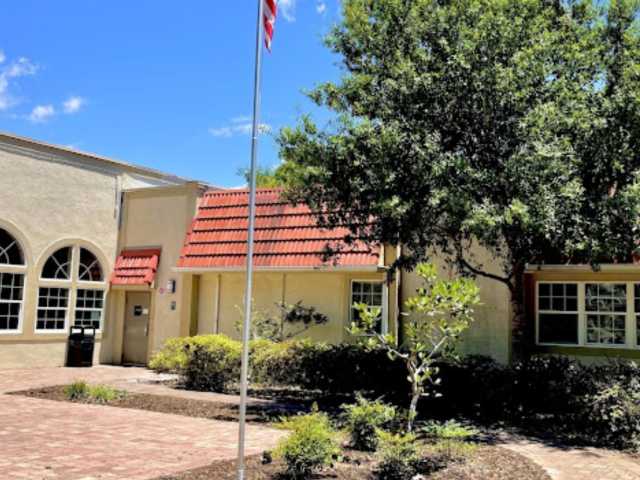

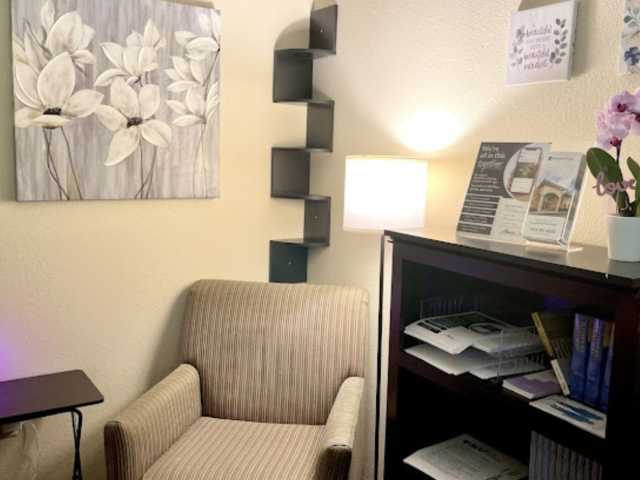
More American Addiction Centers Locations
Recovery.com Verified Listing
Recovery.com verified that the name, location, contact information and license to operate for this treatment provider are valid and up-to-date.

Joint Commission Accredited

Licensed by Florida DCF
Recovery.com is an independent, third-party mental health resource. Verification does not imply endorsement and does not guarantee the quality of treatment services.
Your Care Options
Specializations
Day Treatment
In a PHP, patients live at home but follow an intensive schedule of treatment. Most programs require you to be on-site for about 40 hours per week.
Intensive Outpatient Program
In an IOP, patients live at home or a sober living, but attend treatment typically 9-15 hours a week. Most programs include talk therapy, support groups, and other methods.
LGBTQ group
Group therapy unites LGBTQ+ patients in a safe and culturally competent setting, encouraging peer support under the expert leadership of a therapist.
Outpatient
During outpatient rehab, patients attend a structured treatment program while continuing to live at home.
Who We Treat
LGBTQ+
Addiction and mental illnesses in the LGBTQ+ community must be treated with an affirming, safe, and relevant approach, which many centers provide.
Men and Women
Men and women attend treatment for addiction in a co-ed setting, going to therapy groups together to share experiences, struggles, and successes.
Professionals
Busy, high-ranking professionals get the personalized treatment they need with greater accommodations for work, privacy, and outside communication.
Veterans
Patients who completed active military duty receive specialized treatment focused on trauma, grief, loss, and finding a new work-life balance.
Treatment Services
Day Treatment
In a PHP, patients live at home but follow an intensive schedule of treatment. Most programs require you to be on-site for about 40 hours per week.
Intensive Outpatient Program
In an IOP, patients live at home or a sober living, but attend treatment typically 9-15 hours a week. Most programs include talk therapy, support groups, and other methods.
Outpatient
During outpatient rehab, patients attend a structured treatment program while continuing to live at home.
Approaches
Evidence-Based
A combination of scientifically rooted therapies and treatments make up evidence-based care, defined by their measured and proven results.
Individual Treatment
Individual care meets the needs of each patient, using personalized treatment to provide them the most relevant care and greatest chance of success.
Medical
Medical addiction treatment uses approved medications to manage withdrawals and cravings, and to treat contributing mental health conditions.
Twelve Step
Incorporating spirituality, community, and responsibility, 12-Step philosophies prioritize the guidance of a Higher Power and a continuation of 12-Step practices.
Therapies
1-on-1 Counseling
Patient and therapist meet 1-on-1 to work through difficult emotions and behavioral challenges in a personal, private setting.
Online Therapy
Patients can connect with a therapist via videochat, messaging, email, or phone. Remote therapy makes treatment more accessible.
Medication-Assisted Treatment
Combined with behavioral therapy, prescribed medications can enhance treatment by relieving withdrawal symptoms and focus patients on their recovery.
Motivational Interviewing
Based on the idea that motivation to change comes from within, providers use a conversational framework to discover personalized methods for change.
Psychoeducation
This method combines treatment with education, teaching patients about different paths toward recovery. This empowers them to make more effective decisions.
Conditions We Treat
Anxiety
Anxiety is a common mental health condition that can include excessive worry, panic attacks, physical tension, and increased blood pressure.
Depression
Symptoms of depression may include fatigue, a sense of numbness, and loss of interest in activities. This condition can range from mild to severe.
Substances We Treat
Alcohol
Using alcohol as a coping mechanism, or drinking excessively throughout the week, signals an alcohol use disorder.
Benzodiazepines
Benzodiazepines are prescribed to treat anxiety and sleep issues. They are highly habit forming, and their abuse can cause mood changes and poor judgement.
Co-Occurring Disorders
A person with multiple mental health diagnoses, such as addiction and depression, has co-occurring disorders also called dual diagnosis.
Cocaine
Cocaine is a stimulant with euphoric effects. Agitation, muscle ticks, psychosis, and heart issues are common symptoms of cocaine abuse.
Drug Addiction
Drug addiction is the excessive and repetitive use of substances, despite harmful consequences to a person's life, health, and relationships.
Heroin
Heroin is a highly addictive and illegal opioid. It can cause insomnia, collapsed veins, heart issues, and additional mental health issues.
Psychedelics
Hallucinogenic drugs—like LSD—cause euphoria and increased sensory experiences. When abused, they can lead to depression and psychosis.
Methamphetamine
Methamphetamine, or meth, increases energy, agitation, and paranoia. Long-term use can result in severe physical and mental health issues.
Languages
Aftercare
Care Designed for Your Needs
Special Considerations
LGBTQ group
Group therapy unites LGBTQ+ patients in a safe and culturally competent setting, encouraging peer support under the expert leadership of a therapist.
Activities

Learn More About the Center
Outpatient Services Overview
See an overview of the robust outpatient services offered at River Oaks Outpatient Center.
Alumni Program
Learn more about the alumni program and the app alumni can use to stay connected to care.
Reviews and Testimonials
Read reviews from alumni and past clients.
Telehealth Services
Find out more about River Oaks Outpatient Center’s telehealth services, including benefits and what’s available.





